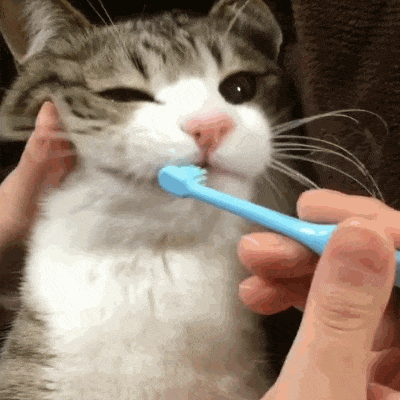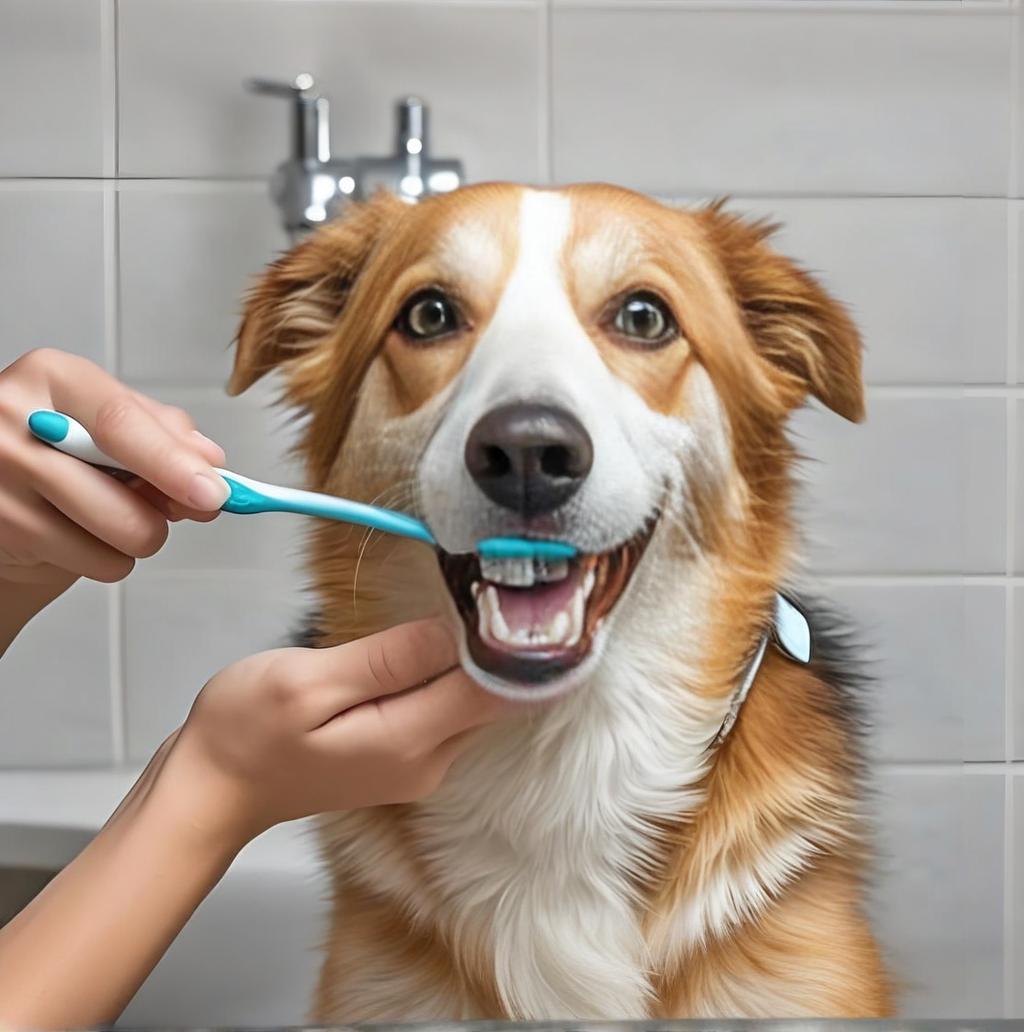Oral health is equally important for pet cats and dogs. Although they are not as prone to tooth decay as humans, they may also face problems such as periodontal disease. Brushing teeth is an effective way to maintain oral health.
1. The necessity of brushing teeth for pet cats (1) Improve the quality of life of cats: A healthy oral cavity allows cats to enjoy food better. If a cat has oral pain, it will eat less or even refuse to eat, which will lead to malnutrition in cats. Brushing teeth can prevent oral diseases, allowing cats to eat normally and maintain good physical condition. Moreover, cats with healthy oral cavity will have fresher breath and will be more pleasant when interacting with their owners.
(1) Improve the quality of life of cats: A healthy oral cavity allows cats to enjoy food better. If a cat has oral pain, it will eat less or even refuse to eat, which will lead to malnutrition in cats. Brushing teeth can prevent oral diseases, allowing cats to eat normally and maintain good physical condition. Moreover, cats with healthy oral cavity will have fresher breath and will be more pleasant when interacting with their owners.
(2)Prevent oral diseases: Like dogs, cats will also have oral problems such as dental plaque and tartar. Cats have relatively small and dense teeth, which are more likely to harbor dirt. Dental plaque and tartar can cause gingivitis in cats, and cats will show symptoms such as difficulty eating and drooling. If not treated in time, oral inflammation may spread and affect the overall health of cats. – Cats are also prone to a disease called "feline stomatitis", which is a relatively serious oral inflammation that causes oral pain in cats and makes them unwilling to eat. Keeping the oral cavity clean can reduce the incidence of feline stomatitis. 2. The necessity of brushing teeth for pet dogs
2. The necessity of brushing teeth for pet dogs
(1) Prevention of oral diseases: Dogs are prone to oral problems. For example, dental plaque and tartar are common oral diseases in dogs. When dogs eat, food residues will remain on the surface of the teeth. If they are not cleaned in time, bacteria will breed on these residues to form dental plaque. Over time, dental plaque will mineralize to form tartar. Tartar will constantly irritate the gums, causing gingivitis, and dogs will have symptoms such as red, swollen, and bleeding gums. Severe cases can also cause periodontitis, causing loose teeth or even falling off. – In addition, if bacteria in the mouth enter the blood circulation, they may cause diseases of other organs, such as heart disease, kidney disease, etc. According to statistics, about 80% of dogs will have oral problems to varying degrees after the age of three.
(2) Prolong the life of teeth: Normal teeth are essential for dogs' eating and quality of life. Brushing teeth can help remove dirt on the surface of teeth, keep teeth healthy, extend the life of teeth, and allow dogs to chew food better and ensure nutrient intake. (3) Fresh breath: If dogs do not brush their teeth, the fermentation of food residues in the mouth will produce an unpleasant odor. This will not only affect close contact with the owner, but may also be a sign of oral disease. Brushing teeth can effectively reduce bad breath and maintain a fresh smell in the mouth.
(3) Fresh breath: If dogs do not brush their teeth, the fermentation of food residues in the mouth will produce an unpleasant odor. This will not only affect close contact with the owner, but may also be a sign of oral disease. Brushing teeth can effectively reduce bad breath and maintain a fresh smell in the mouth.
When brushing your pet's teeth, use a toothbrush and toothpaste designed specifically for pets. Pet toothpaste is usually swallowable because pets do not spit out toothpaste like humans. When you first brush your pet's teeth, they may not be used to it, and the owner needs to guide them patiently to gradually get used to the process of brushing their teeth.
Categories: pets
